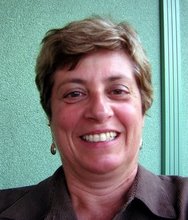However, the tragedy didn't sink in for her until one night she sang "Back Water Blues," a song written in the 1930s about a Louisiana storm. When she came to the line: "I went high on a hill and got no place to go," she lost it in front of her audience.
Ms. Thomas lived in the 9th Ward. Like all evacuees who were dispersed throughout the country, she and her husband had to decide whether or not to return to New Orleans. For two years they stayed in Gonzales, 60 miles upriver, until they were able to return home "where their hearts were."
Katrina inspired Ms. Thomas' new album, After the Rain, which won the Grammy for Best Contemporary Blues Album in 2007.
"Music orients us to the place and provides the creative spark for ourselves and the whole city," she said. "Music was all Orleanians had after Katrina."
In fact, the city lost a lot of its musicians, many of whom lived in the 9th Ward. They either couldn't return home because of finances (many work for cash and don't have a credit record) or the older ones were on tour in Europe.
Losing many of the city's musicians created a problem for young people looking to be mentored by them. Most schools had closed and opportunities for kids to join bands and play music were severely reduced. As a result, the first Mardi Gras after Katrina had few high school marching bands playing in the parades.
"We want to let them know that they have a culture," said Pete. "Without that [music] connection, they are lost. We needed to let them know that they have a rich culture here in New Orleans."
"Music kept the kids out of trouble," said Ms. Thomas. "Music teaches them discipline." If students have bad grades, they aren't allowed to play in the band.
(Note: You can view every article as one long page if you sign up as an Advocate Member, or higher).





